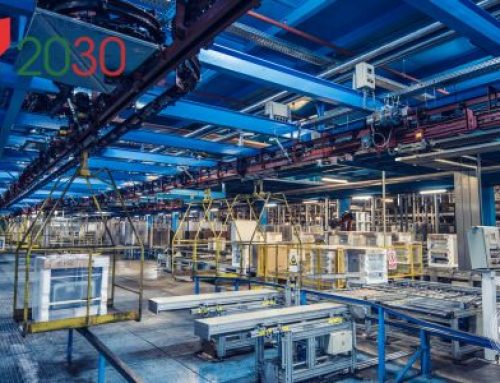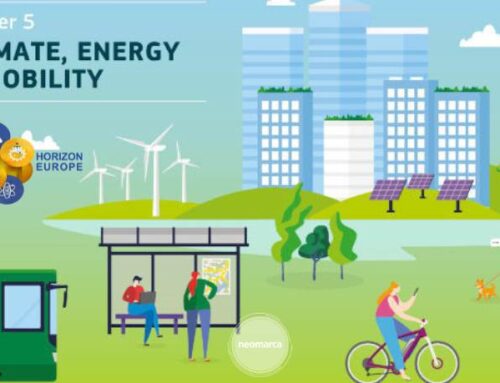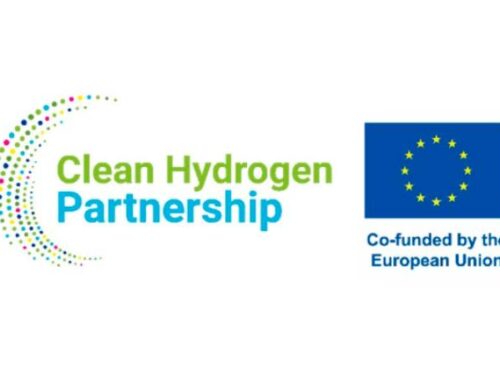The European Commission is accepting grant applications for processing and refining of critical raw materials (IA) under Horizon Europe Framework Programme. Projects outcomes will enable achieving the expected impacts of the destination by increasing access to primary raw materials and secondary raw materials, in particular critical raw materials for EU industrial value chains and strategic sectors.
Deadline: 7 February 2024
Call: HORIZON-CL4-2024-RESILIENCE-01-04
Scope
- Actions should demonstrate new or improved systems integrating relevant processing and refining technologies for better recovery of raw materials from low grade and/or complex ores from extractive wastes, less waste, higher energy efficiency. The action could also reduce the content of toxic elements or compounds in the resulting material products. The actions should target minerals and metals, particularly critical raw materials.
- The solution proposed should be flexible enough to adapt to different or variable primary and secondary raw materials grades and should be supported by efficient and robust process control. Where relevant, any solution proposed for the reduction of the content of toxic elements or compounds in the resulting materials should also include the appropriate management of the hazardous substances removed.
- Actions should develop intelligent and innovative production systems which better utilise natural resources by minimising losses during waste-rock separation in an optimised and energy-efficient process and by minimising use of water.
- Recycling of end-of-life products is excluded from this topic, though joint processing of waste streams originating from end-of-life products recycling could be included and has to be duly justified.
- Actions should envisage clustering activities with other relevant selected projects for cross-projects co-operation, consultations and joint activities on cross-cutting issues and share of results as well as participating in joint meetings and communication events. To this end proposals should foresee a dedicated work package and/or task, and earmark the appropriate resources accordingly.
- Actions should facilitate the market uptake of solutions developed through industrially- and user-driven multidisciplinary consortia covering the relevant value chain and should consider standardisation aspects when relevant. The action should also include the analysis of financial opportunities ensuring the market exploitation and replication of the circular business model behind the developed solutions as new processes, products and/or services.
- Proposals submitted under this topic should include a business case and exploitation strategy, as outlined in the introduction to this Destination. For TRLs 6-7, a credible strategy to achieve future full-scale deployment in the EU is expected, indicating the commitments of the industrial partners after the end of the project.
- In this topic the integration of the gender dimension (sex and/or gender analysis) in research and innovation content is not a mandatory requirement, however, should you consider it to be of relevance for your specific proposal, you are strongly encouraged to do it.
Funding Information
The check will normally be done for the coordinator if the requested grant amount is equal to or greater than EUR 500 000, except for:
- public bodies (entities established as a public body under national law, including local, regional or national authorities) or international organisations; and
- cases where the individual requested grant amount is not more than EUR 60 000 (lowvalue grant).
Expected Outcome
- Projects outcomes will enable achieving the expected impacts of the destination by increasing access to primary raw materials and secondary raw materials, in particular critical raw materials for EU industrial value chains and strategic sectors.
- Projects are expected to contribute to the following outcomes:
- Increase recovery rates of valuable raw materials, particularly critical raw materials from low grade or complex ores and/or from extractive waste;
- Significantly increase economic performance in terms of higher material-, water-, energy- and cost-efficiency and flexibility in minerals processing and metallurgical processes;
- Significantly improve the health, safety and environmental performance of the operations throughout the whole life cycle which is considered, including a reduction in waste, wastewater and emissions generation and a better recovery of resources from generated waste;
- Improve responsible supply of raw materials to Europe in line with the EU principles for sustainable raw materials, which are a non-regulatory set of principles based on the EU acquis. They set out requirements for sustainable raw materials and extraction and processing in Europe in terms of social, environmental and economic performance. Actions are expected to contribute to the implementation the EU action plan on Critical Raw Materials.
Eligibility Criteria
- Eligibility Entities eligible to participate
- Any legal entity, regardless of its place of establishment, including legal entities from nonassociated third countries or international organisations (including international European research organisations) is eligible to participate (whether it is eligible for funding or not), provided that the conditions laid down in the Horizon Europe Regulation have been met, along with any other conditions laid down in the specific call topic.
- A ‘legal entity’ means any natural or legal person created and recognised as such under national law, EU law or international law, which has legal personality and which may, acting in its own name, exercise rights and be subject to obligations, or an entity without legal personality.
- Beneficiaries and affiliated entities must register in the Participant Register before submitting their application, in order to get a participant identification code (PIC) and be validated by the Central Validation Service before signing the grant agreement. For the validation, they will be asked to upload the necessary documents showing their legal status and origin during the grant preparation stage. A validated PIC is not a prerequisite for submitting an application.
- Entities eligible for funding
- To become a beneficiary, legal entities must be eligible for funding. To be eligible for funding, applicants must be established in one of the following countries:
- the Member States of the European Union, including their outermost regions: Austria, Belgium, Bulgaria, Croatia, Cyprus, Czechia, Denmark, Estonia, Finland, France, Germany, Greece, Hungary, Ireland, Italy, Latvia, Lithuania, Luxembourg, Malta, Netherlands, Poland, Portugal, Romania, Slovakia, Slovenia, Spain, Sweden.
- the Overseas Countries and Territories (OCTs) linked to the Member States: Aruba (NL), Bonaire (NL), Curação (NL), French Polynesia (FR), French Southern and Antarctic Territories (FR), Greenland (DK), New Caledonia (FR), Saba (NL), Saint Barthélemy (FR), Sint Eustatius (NL), Sint Maarten (NL), St. Pierre and Miquelon (FR), Wallis and Futuna Islands (FR).
- countries associated to Horizon Europe; Albania, Armenia, Bosnia and Herzegovina, Faroe Islands, Georgia, Iceland, Israel, Kosovo, Moldova, Montenegro, North Macedonia, Norway, Serbia, Tunisia, Turkey, Ukraine.
- To become a beneficiary, legal entities must be eligible for funding. To be eligible for funding, applicants must be established in one of the following countries:
- Specific cases:
- Affiliated entities — Affiliated entities are eligible for funding if they are established in one of the countries listed above, or in a country identified in the specific call conditions.
- Associated partners — Entities not eligible for funding (and therefore not able to participate as beneficiaries) may participate as associated partners, unless specified otherwise in the specific call conditions.
- Coordination and Support Actions – To be eligible to participate as beneficiaries (or affiliated entities) in ‘Coordination and support’ actions, legal entities must be established in a Member State or Associated Country, unless the specific call conditions provide otherwise. Legal entities established in a non-associated third country may, however, participate in ‘Coordination and support’ actions as associated partners, unless this is explicitly excluded by the specific call conditions.
- EU bodies — Legal entities created under EU law may also be eligible to receive funding, unless their basic act states otherwise.
- International organisations — International European research organisations are eligible to receive funding.
For more information, visit European Commission.





